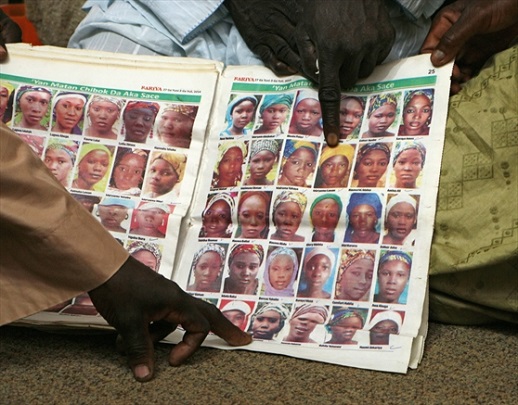
Boko Haram has abducted 22 girls and women in two separate raids in north-east Nigeria, residents and vigilantes say.
In the first attack on 30 March, the jihadists raided the village of Pulka near the border with Cameroon, where they kidnapped 18 girls.
In the second incident, outside the village of Dumba, close to Lake Chad, the jihadists killed a herdsman who had tried to escape after refusing to pay protection money, said Adamu Ahmed, a member of an anti-Boko Haram militia.
Another resident confirmed the raid and said the girls were likely to end up as brides for the fighters, saying: “They didn’t harm anyone during the raid and they made no attempt to shoot people running away from the village.”
The treatment of Christian women and girls in northern Nigeria since 1999 was the subject of a detailed report, “Our Bodies, their Battleground“, whose authors explored what they called “the facilitating characteristics of the country in which the [Boko Haram] insurgency has come to operate so effectively”.
It showed that the abduction of Christian girls was common practice long before the advent of Boko Haram and its infamous kidnapping of about 300 mainly Christian schoolgirls from Chibok in April 2014.
According to an official, the attackers belong to the faction headed by Abu Musa Al-Barnawi, the son of Boko Haram founder Mohammed Yusuf. Al-Barnawi was appointed last year by the Islamic State group (Boko Haram now also refers to itself as the Islamic State’s West African Province) to replace previous leader Abubakar Shekau.
His promotion revealed divisions in the radical Islamic group, as Shekau had been criticised for mass killings and suicide attacks against civilians.
In recent weeks the Islamist fighters have intensified raids in the Lake Chad area, stealing food from residents. They have also killed several civilians they accused of cooperating with the military.
Source: The Guardian